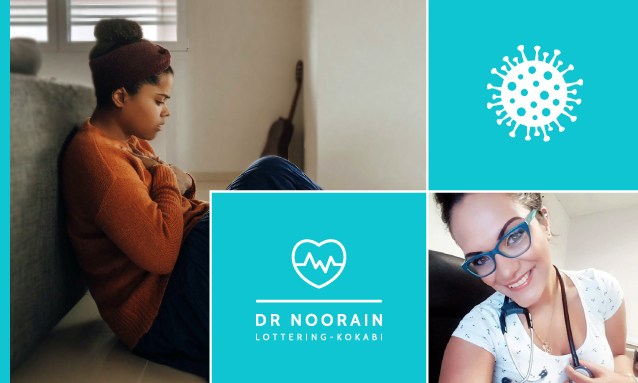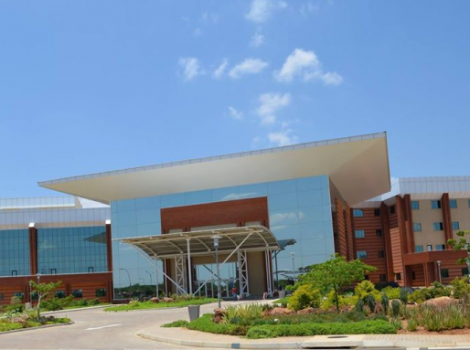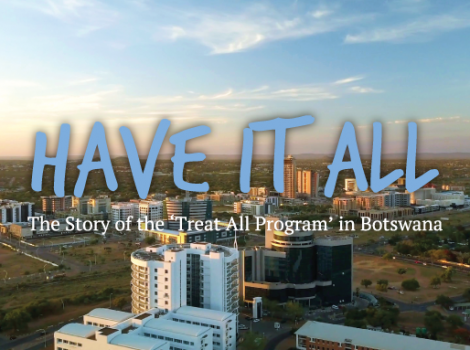
COVID-19 has had so much focus placed on contracting it, and what happens during COVID-19, but how much is truly understood about what happens after those 10-14 days?
Post-COVID Syndrome or Long COVID refers to new, returning or continuing health issues that occur for more than four weeks after recovering from COVID-19. Surprisingly, even people who were actually asymptomatic during their COVID infection can develop Post-COVID Syndrome. These health issues can include but are not limited to:
- Fatigue/tiredness
- Brain Fog – difficulty in thinking or concentrating
- Dizziness/Lightheadedness on standing
- Sleep Disturbance
- Chest tightness/shortness of breath
- Palpitations – racing heart rate
- “Pins & needles” feeling on the skin
- Headache
- Cough
- Changes in smell and/or taste
- Anxiety
In some cases, individuals may have experienced these symptoms during their COVID infection and have them continuing. But in other cases, individuals only develop these after recovery. While in other cases, individuals find that their clinical picture fluctuates with some days feeling in tip-top shape and then unexpectedly they are slapped down by a wave of feeling unwell, usually(but not always) following exertion.
Fatigue/Tiredness with joint and muscle aches seem to be the most common symptoms. Patients have reported their bodies feeling worn out along with debilitating exhaustion. This is generally a usual occurrence following any kind of viral infection. It is not a particular cause for concern, as it is typically short-lived, with normal health and activity levels resuming in a few weeks. The best treatment for this is vitamins, a healthy balanced diet and lots of rest with gradual physical activity.
“Brain Fog” seems to be a repercussion of the fatigue/tiredness as well as sleep disturbances and/or anxiety. One cannot think clearly, if one feels fatigued or their body is aching, neither can one concentrate if they were up all night with anxiety and then awoke with a headache. The best cure for “brain fog” is rest, eating food that enriches brain health such as nuts or beans, exercising and participating in cognitive stimulating activities such as yoga, reading a book, playing a video game, building a puzzle, etc.
Dizziness/lightheadedness has been found to occur due to COVID affecting the nervous system of the body. As such, when a person stands up too quickly, their blood pressure drops just as quickly, and then they feel dizzy or lightheaded. Palpitations (racing heart rate) and the “pins and needles” are also thought to be due to COVID attacking the nervous system. It is very important that individuals inform their doctors if they experience these symptoms, which while not harmful in most cases and will resolve, it is essential to have a thorough medical examination to ensure all is well and have treatment if necessary. In general, paced physical activity and rest will help to alleviate these symptoms.
Chest tightness/shortness of breath and cough are usually due to the lungs still recovering from the COVID infection. Some individuals have reported these symptoms occurring for months after their initial infection. Chat with your doctor should you still experience these symptoms so that they may assess if you require medication to help alleviate these symptoms until resolution. For this reason, after recovery, it is essential for everyone to have a chest x-ray to assess if the lungs have been affected and to what extent. It is also helpful to do regular deep breathing exercises as well as having lots of rest.
Headaches may be due to COVID having attacked the brain (and nervous system), sleep disturbances or in worst-case scenarios, strokes caused by clot formation (COVID has been found to cause blood clots). It is of the utmost importance that individuals chat at length with their doctor to determine the cause of the headache and prescribe treatment as appropriate. In most cases, it is a result of post-viral fatigue and sleep disturbance, in which case paracetamol and good ol’ rest will suffice.
Changes in taste or smell are also due to COVID having attacked the nervous system. These vary between complete loss of smell or taste and altered smell or taste. These symptoms are generally short-lived and will return to normal in due time. But it can be very frustrating to see a delicious burger and have it taste like nothing or receive a bouquet of flowers and have them smell like rotten fruit.
To resolve these symptoms, individuals can practice taste and/or smell training. Each day, whilst blindfolded, practice tasting and smelling different things varying from pungent tastes/smells too sweet tastes/smells. Many persons have also reported that the “Jamaican orange trick” (roasting an orange until black, peeling it, juicing it and eating the flesh) helps restore taste and smell.
Anxiety, oh anxiety. While COVID itself can cause many of the above symptoms, anxiety can cause sleep disturbances, palpitations, chest tightness, headaches and brain fog. Anxiety may be caused by the worry generated by media or maybe due to fear after having an awful battle with COVID or perhaps due to the fear of contracting COVID again. There are so many aspects to anxiety in this pandemic. The essential thing is to discuss these feelings with your doctor to receive appropriate help. Bottling it up or pushing through these incapacitating symptoms will only make the anxiety worse. It is so important that people recognise that “it is ok not to be ok” and there are many treatment options (drug-related and non-drug-related) that can help treat anxiety, including meditation, affirmations, mindfulness, etc.
Post-COVID has such a vast picture with so many different facets. To anyone recovering from COVID, be gentle with yourself and ease yourself into normalcy. COVID has taken such a toll on us mentally, physically and emotionally, and it cannot be stressed enough as to how much REST, REST and more REST is truly a key factor (in conjunction with other treatment) in dealing with the effects of COVID. Remember, you are not alone in your struggle; reach out to your doctor to help you cope.
P.S. PLEASE NOTE THIS ARTICLE SPEAKS TO THE MOST COMMON POST-COVID SYMPTOMS; IT IS IMPORTANT TO BEAR IN MIND THAT THESE MAY TAKE ON A MORE SERIOUS CLINICAL PICTURE WHEN CO-MORBIDITIES ARE INVOLVED.
By YourBotswana writer:
Dr. Noorain Lottering-Kokabi, BMSc, MBBS (UWI MONA) BIO
Born in May 1989, Dr Noorain hails from Gaborone Botswana. She completed her Pre-Med at the University of Botswana and went on to attain her BMSc and MBBS degrees at The University of The West Indies in Kingston Jamaica.
Having practised medicine in both the Caribbean and Botswana, she has been exposed to an array of conditions and ailments that have in turn widened her scope of expertise. She is also involved in multiple philanthropic projects that aim to equip youths with relevant life skills and tools they need throughout their lives.
A young, diligent, enthusiastic professional with a formidable hunger to continuously seek further knowledge, both in alternative and modern medicine, Dr. Noorain aims to better the healthcare in the communities she serves.
She currently works in community health providing first line care for the community as a whole. Her current position has enabled her to manage both common and complex cases. These cases range from the common cold/flu, bites to mental health, uncontrolled diabetes, hypertension, tuberculosis and HIV (along with the associated complications). Having worked in the Caribbean, Dr. Noorain is very familiar with the treatment of tropical diseases and severe symptoms that may arise from such diseases.
Dr. Noorain provides quality outpatient care ensuring that her patients are fully educated on their respective illness. After all a patient that is well educated on their illness is more likely to comply with medical protocols and prevention strategies, hence reducing potential mortality and morbidity statistics, which reflects a healthy and happier Botswana.
Dr Noorain is a young, career driven, passionate, culturally and medically diverse professional. She is excited about her collaboration with YourBotswana, hoping to use the platform to educate citizens and visitors alike on current health issues in Botswana.



